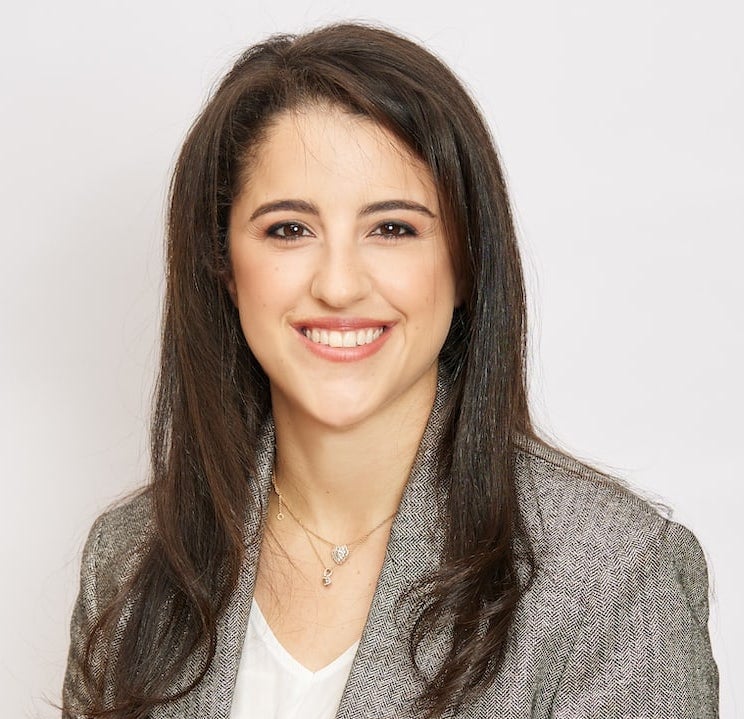Find Your Perfect Fit: Types of HR Roles
Human Resources (HR) is a dynamic and essential component of modern businesses, responsible for managing the most valuable asset of any company: its people.
As businesses grow and change, so do the roles within HR, each with unique responsibilities and opportunities for career growth.
If you’re thinking about transitioning into a career in HR, there are many types of HR roles available for you to choose from. Let’s break it down.
 The importance of HR in modern businesses
The importance of HR in modern businesses
For modern businesses to succeed, they need teams of highly skilled and engaged people who feel a sense of belonging, and who genuinely want the best outcomes for the business. That’s where HR professionals come in. They play a crucial role in shaping a welcoming and inclusive company culture by fostering positive employee relations and creating opportunities for growth.
HR professionals are the glue that holds workforce management together. They scout and onboard top talent, manage employee performance, and ensure a safe working environment.
All these HR functions are key to helping businesses achieve their goals, uphold their values, and retain talented employees.
What are the key areas and roles of Human Resources?
Because HR professionals play a major role in an organisation’s workplace culture and performance development, their roles and responsibilities cover a wide range of areas. Here are just a few:
Employee recruitment and staffing
Although a hiring manager is often responsible for hiring employees, HR professionals are instrumental in many aspects of the hiring process. Here are some HR roles related to recruiting that might match your skills and interests:
- Recruitment and talent acquisition specialist: Focuses on finding and attracting top talent to meet the company’s needs. Their common responsibilities include creating job postings, screening candidates, conducting interviews and supporting new hires during the onboarding process.
- Staffing coordinator: Manages the employee placement within the company, ensuring that departments are properly staffed to meet operational goals. This role involves coordinating with heads of department, managing staffing schedules and monitoring employee performance reports.
Employee relations
HR professionals maintain strong employee relations by resolving disputes, enforcing company policies, and tracking employee relations records. If this is an area of HR that interests you, here are some roles in employee relations you might consider:
- Employee relations specialist: Addresses employee concerns, resolves workplace conflicts and ensures a harmonious and safe work environment. This role often involves settling workplace disputes, educating employees on workplace expectations, and implementing strategies to improve employee satisfaction. Excellent conflict resolution and communication skills are key in this role.
- HR generalist: A versatile role covering a broad range of HR functions, including recruitment, employee relations, training and development, and compliance. Because this role is so broad, this position requires a well-rounded understanding of all HR areas and strong communication skills.
- HR compliance specialist: Makes sure the company follows labour laws and regulations. This role involves staying up-to-date with any legal changes that could impact the organisation, conducting audits and implementing compliance programs.
Learning and development
Many organisations offer learning and development opportunities to help employees perform at their best.
HR professionals are key to organising these training programs. If you’re interested in learning and development, here are a few HR roles to consider:
- Training and development manager: Organises the design and execution of training programs to improve employee skills and performance. Key responsibilities include assessing employee gaps and training needs, developing trining curricula, and evaluating the effectiveness of these programs
- L&D specialist: Focuses on specific aspects of employee training and development. This role involves creating and delivering targeted training sessions, often with a focus on particular skills or competencies.
Performance management
Companies rely on performance management tools as an excellent way to make sure employees understand what’s expected of them, and to give managers clear metrics on who’s performing well and who needs support.
HR professionals in performance management usually occupy a leadership role, which can open many opportunities for you if leadership is an avenue you wish to pursue. Here are three HR roles in performance management that may interest you:
- Performance analyst: Analyses employee performance data to identify trends and areas for improvement. This role involves developing performance metrics, conducting evaluations, and providing actionable insights to management.
- Performance manager: Manages the performance appraisal process, ensuring employees receive regular feedback and opportunities for development. This role also involves setting performance goals and working closely with employees to help them achieve their goals.
- HR business partner: Works closely with business leaders to align HR strategies with organisational goals. This strategic role involves advising on talent management, organisational development, and performance improvement initiatives.
Company culture
HR professionals play a huge role in maintaining a positive workplace culture and ensuring employees follow expected norms and behaviours.
If you’re passionate about promoting inclusivity and helping people feel more engaged at work, here are some company culture-related HR roles that might interest you:
- Culture manager: Develops and implements initiatives to foster a positive and inclusive workplace culture. Responsibilities include organising team-building activities, promoting company values and measuring the company’s cultural impact.
- Employee engagement specialist: Focuses on boosting employee engagement and satisfaction. This role involves conducting surveys, analysing feedback, and implementing programs to boost morale and productivity.
- Diversity and inclusion officer: Champions diversity and inclusion within the organisation. This role involves developing policies, conducting training programs that reinforce diversity, and promoting initiatives that support a diverse and inclusive workplace.

 Choosing the right HR path for you
Choosing the right HR path for you
In the fast-changing world of business, HR is becoming increasingly important. As a result, there are various different types of HR roles available with excellent opportunities for career progression.
Deciding which HR role suits you best depends on your interests, skills and career aspirations. Whether you’re passionate about recruiting top talent, fostering employee development, or shaping company culture, there is a HR role that can align with your goals.
Why choose MCI Institute?
At MCI Institute, our skilled mentors have a deep understanding of the world of business, and have the background expertise and supportive abilities to facilitate your journey into your chosen HR career.
We offer flexible and credible HR courses designed to equip you with the practical knowledge and skills needed to excel in your chosen HR career.
Our courses are tailored to accommodate your current job and personal responsibilities, making it easier for you to transition or advance in your HR career.
With a focus on real-world applications and up-to-date industry practices, MCI Institute is your partner in achieving your HR career aspirations.
Need assistance to start your learning journey?
You are in the right place! Please book a free career consultation with one of our course advisors. They will help you define your goals and match you with the skills and training that will guide you towards success.

.png?width=113&name=MCIinstitute_RGB_Color_Black-01%20(2).png)


